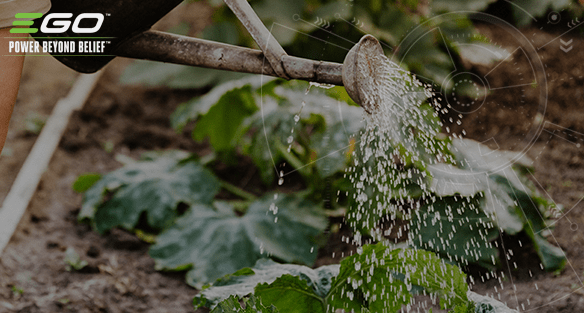You can collect and store rainwater in your garden all year round. Particularly in Europe, where some countries get their fair share of rain more than others. Of course, it’s up to you what to use your stored water for. Here are some reasons to collect it:
- It stops you from using mains water which is a precious and costly resource
- It gives you a backup store of water during dry weather or drought
- It’s economical, as it’s free once you’ve invested in the equipment
- Rainwater is better for your plants like azaleas than mains water because it has a lower pH
What, where and how to catch the rain
What you’ll need
You can collect rainwater from the roof of any structure like a greenhouse or garden shed. As long as you have gutters and a downspout, you only need the addition of a water collection vessel like a water butt.
You can reuse other items that would make excellent water storage vessels:
- Old wheelie bins or dustbins (make sure you clean it before use)
- Old plastic storage containers, the bigger the better
- Plastic barrel
Choosing a site
First choose a site to put your water collection vessel. It’s vital it’s placed beneath a downspout and on relatively level ground to avoid toppling over and causing injury to people and pets. If possible, it should be somewhere that’s in shade.
If your water butt is in direct sunlight, the water will be warmed up, which could encourage bacteria growth.
It’s also wise to have a barrier over your water collection vessel like a lid or mesh grate over the top. This will stop children, pets and wildlife accessing it and falling in.
Let nature do the rest
Now that you’ve put your water butt in a suitable place, let nature do the rest. As your vessel becomes fuller, try to use the water as often as you can. This is so the water butt is refilled regularly and there’s always a source of water that’s as fresh as possible.
With that being said, keep an eye on the weather forecast. Water becomes liquid gold during long spells of dry weather or drought. If you notice an upcoming period of dry weather, leave your container to collect as much water as it can before the fine weather arrives.
Maintenance
Keep your gutters clear of matter and debris. Organic matter like fallen leaves in the autumn are especially a culprit for blocking up gutters, preventing water from reaching your water butt.
Insects like midges and mosquitoes love to lay their eggs in the moist, still conditions a water butt provides. To prevent them from accessing the container, cover it with an impenetrable barrier like a tight lid.
Alternatively, add about a tablespoon of olive oil to the vessel. The olive oil will float on top of the water and provide a barrier between the water and insects.
You may notice your water butt leaking. This can happen from general wear and tear, although certain plastics can become brittle in the sunlight and crack. It’s not much of a concern, depending on the amount that’s leaking, but every little bit of water you can save the better.
To prevent a build up of dirt, debris and potentially harmful plant diseases, empty and clean your water vessel out yearly. For a comprehensive guide, visit this how to on cleaning your garden infrastructure by the RHS.
Other uses of collected water
Your collected water doesn’t have to be used only on garden plants. There are other uses too like:
- Washing/bathing pets
- Using on the compost heap - moistening the heap actually kick-starts the composting process
- Filling water trays or ponds for wildlife to use
- Washing your car
Interested in more green gardening tips? Visit our EGO News page and have a browse. We have plenty of tips and tricks that will be beneficial for your garden practices.
From the more practical things like cleaning the deck of your ride-on lawn mower, to tackling unexpected snow - there’s plenty to discover.
